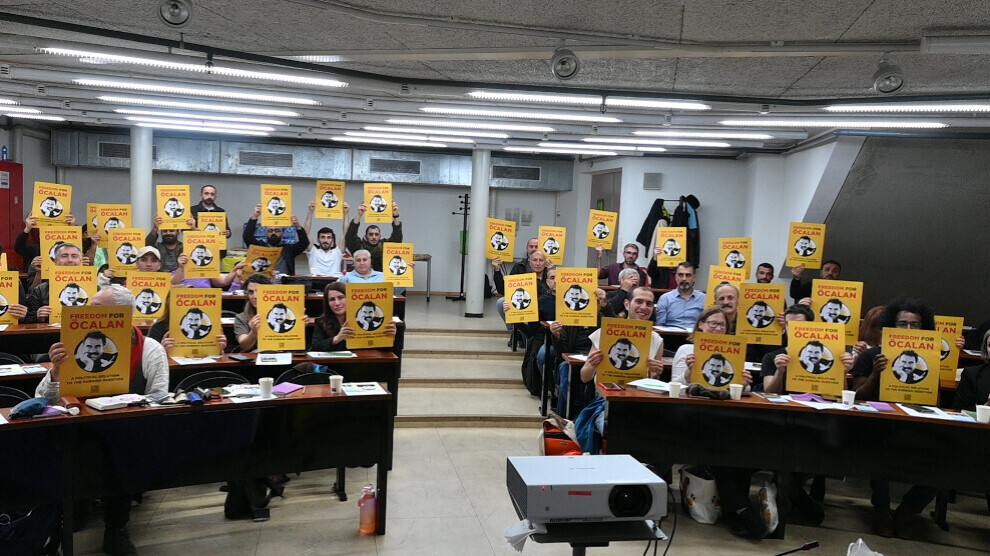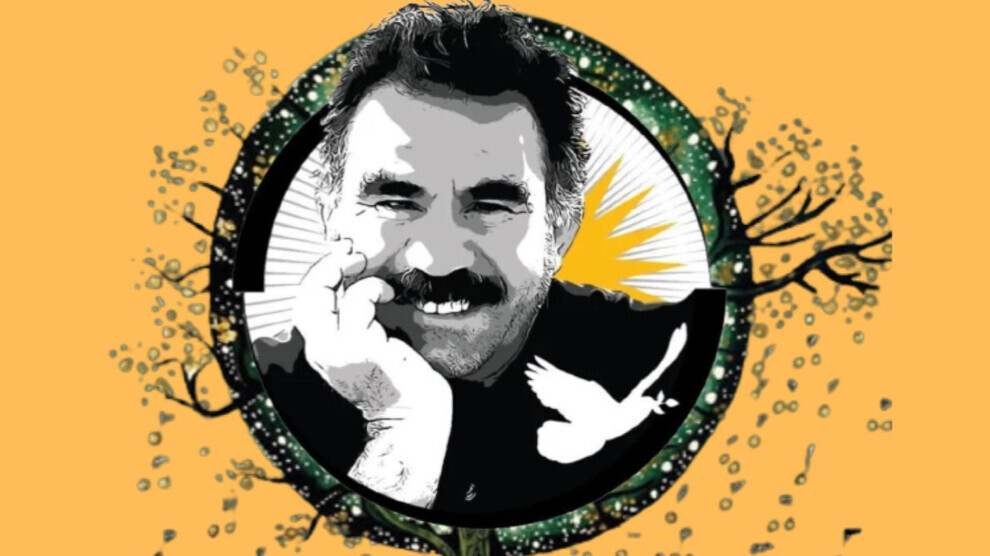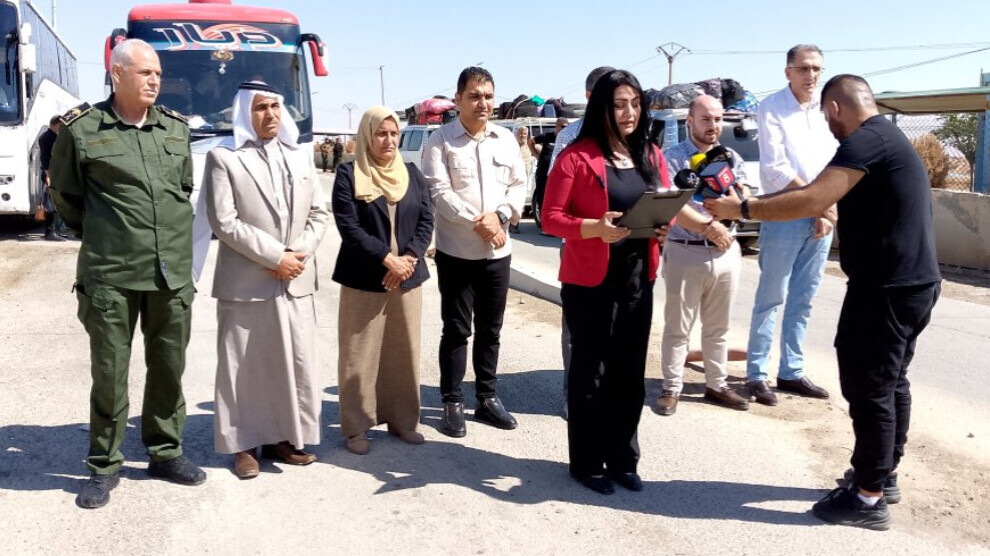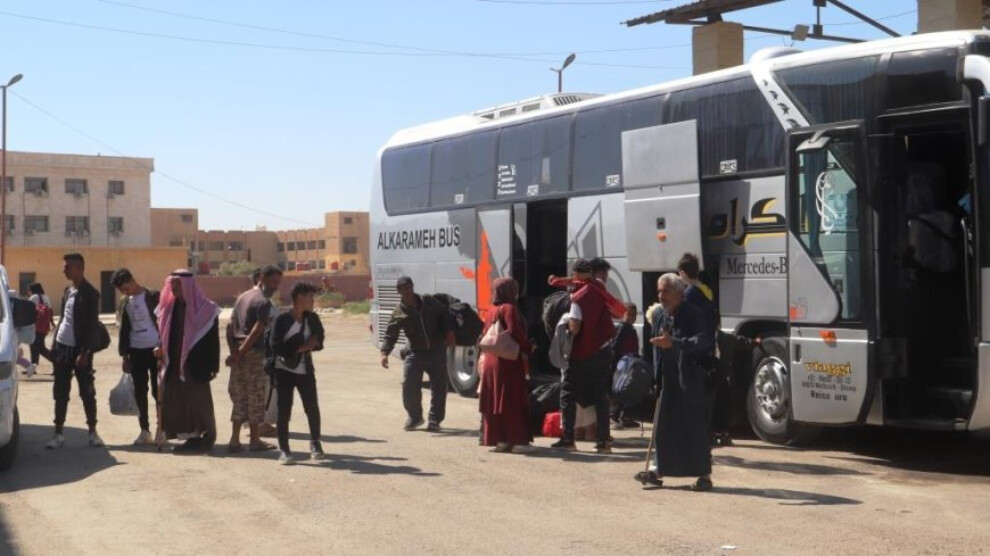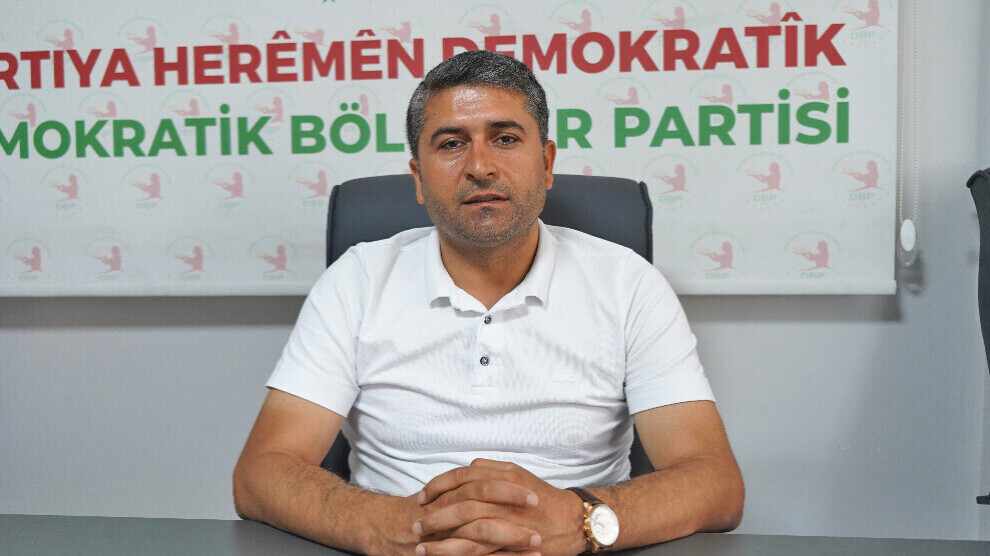Speaking at an ecology conference in Balıkesir, DEM Party Co-Chair Tuncer Bakırhan said, “Let's get rid of this government that is dragging us into the abyss and bringing Turkey to the brink of destruction.”
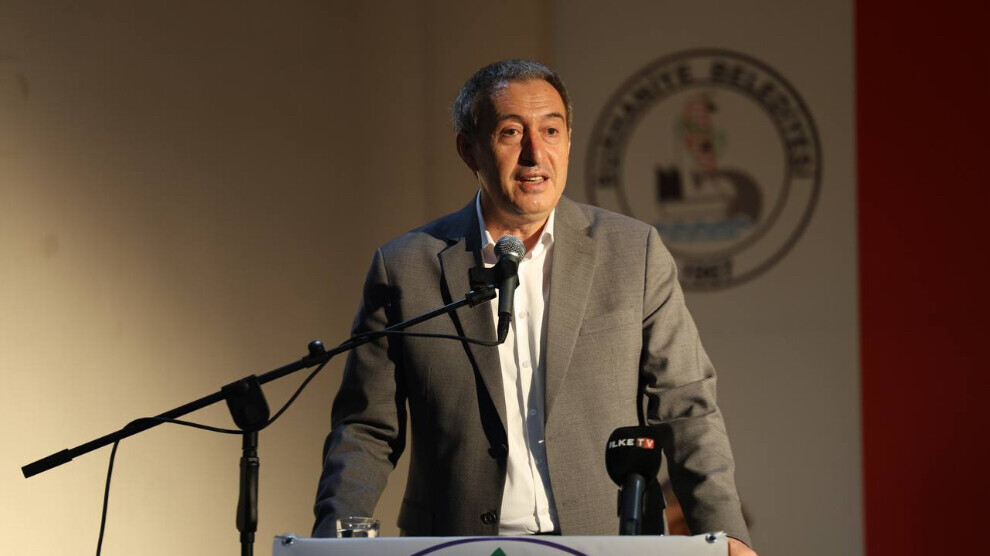
ANF
BALIKESİR
Sunday, 29 September 2024, 15:12
The Peoples' Democracy and Equality Party (DEM Party) Balıkesir Provincial Organisation is holding a conference on ecological destruction.
The ‘Balıkesir Ecology Conference’ is taking place at Reha Yurdakul Cultural Centre in Burhaniye district with the participation of DEM Party Co-Chair Tuncer Bakırhan, many residents from Balıkesir as well as neighbouring provinces.
The conference opened with the screening of Hakan Tosun's documentary on ecological destruction. Speaking at the opening, DEM Party Co-Chair Tuncer Bakırhan started his speech by commemorating Reşit Kibar, who was murdered on 3 September in Borçka, Artvin while trying to protect the forests.
Reacting to the pro-rent logic of the government and capital, Tuncer Bakırhan drew attention to the ‘Bread and Justice Meetings’ they have been organising for a few months and said: “Wheat producers in Nusaybin, sunflower producers in Tekirdağ, shopkeepers, fishermen, women, youth, those who seek justice and law are all revealing the reality of the government everywhere.”
Bakırhan continued: “In addition to the struggle waged by the friends of the Kurds in the quest for democracy, the struggle waged in the Aegean region, Balıkesir and Kazdağları against ecocide is very important and valuable. The struggle in this field is at least as valuable as the struggle for democracy. I would like to thank all my friends who are fighting this struggle for their efforts.”
Criticizing the fact that the government is making it even easier to commit ecocide with omnibus bills, Bakırhan said, “The government relies on its numerical majority, it relies on its partners who think like itself. It trusts the opposition, which is not strong and serious. Since they are faced with an opposition that makes their work easier, they can do everything more easily.”
Pointing out that the government has amended the forest law 32 times in 22 years, Bakırhan said that they are struggling against a government that is hostile to forests, green, rivers, mountains, resisting Kurds and women.
Bakırhan stated: “I am saying it here for the first time. They are preparing a new law proposal for mining companies, which are constantly trying to propose new laws to the government in order to have easier access, to obtain licences more easily and to obtain more rent. They want there to be no administrative obstacles in front of them. They are already overcoming the obstacles in some way, but they want to eliminate them altogether. Our job is difficult, but 80 percent of Turkey thinks like us. We have only one shortcoming. We are unable to organise, to come together, to build a strong ground against this savage capital, the palace, the ecocidal power that works for war.”
Remarking that 155 mining companies in Balıkesir received 279 mining exploration-operation licences, Bakırhan concluded as follows: “Therefore, all the districts of Balıkesir are in the same situation and Kazdağları has become a centre of gold mining. There are several foreign and local companies. Whether goreign or domestic, the aim of the companies is rent. These companies are so reckless that they work to obtain the highest rent at the lowest cost, just like the capitalist system does. Where should those people who are engaged in animal husbandry, agriculture, fruit and vegetables go? No one cares about this, the government does not care at all. Then we should not care about this government either. Let's get rid of this government that is dragging us into the abyss and bringing Turkey to the brink of destruction.”
